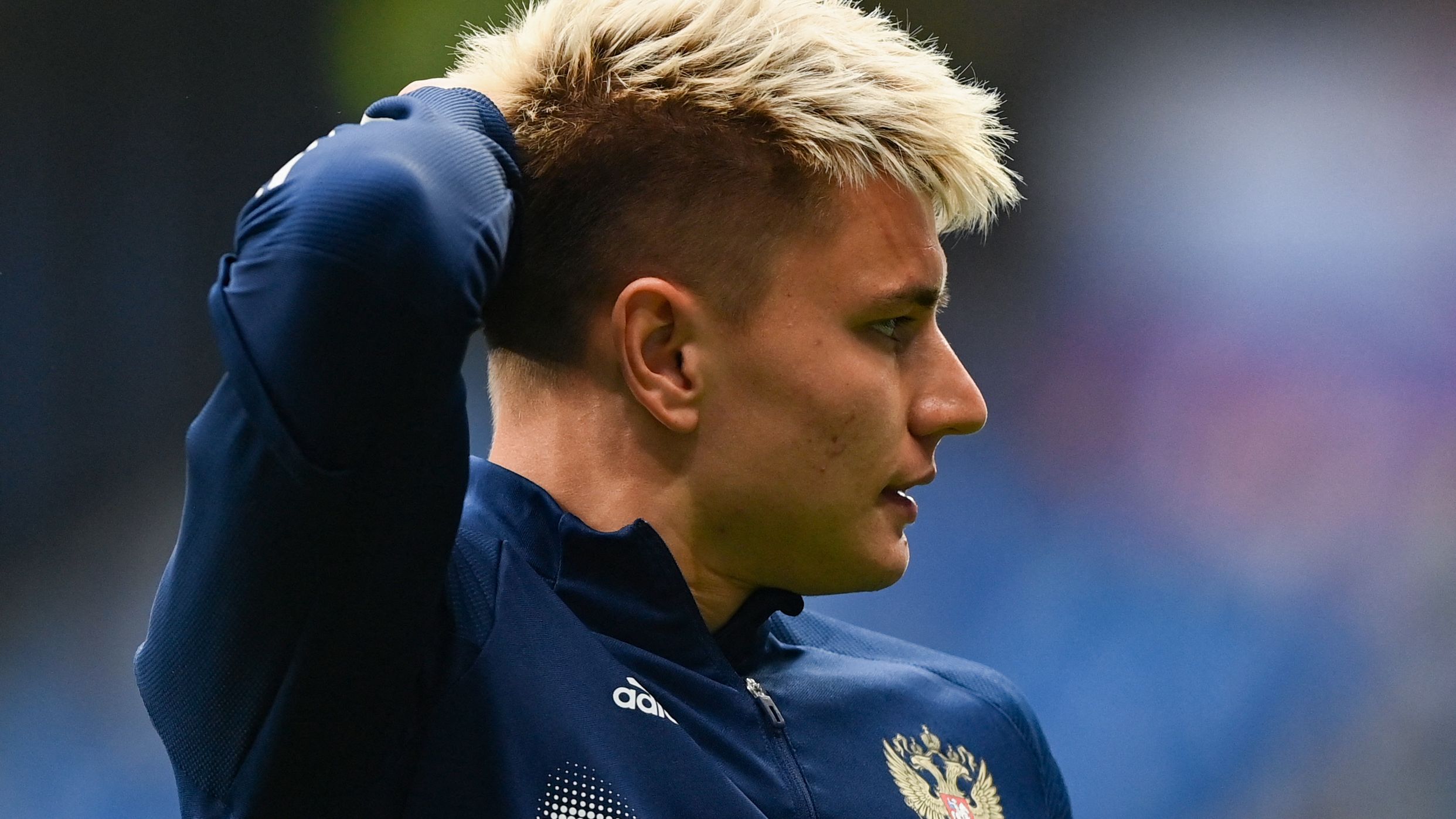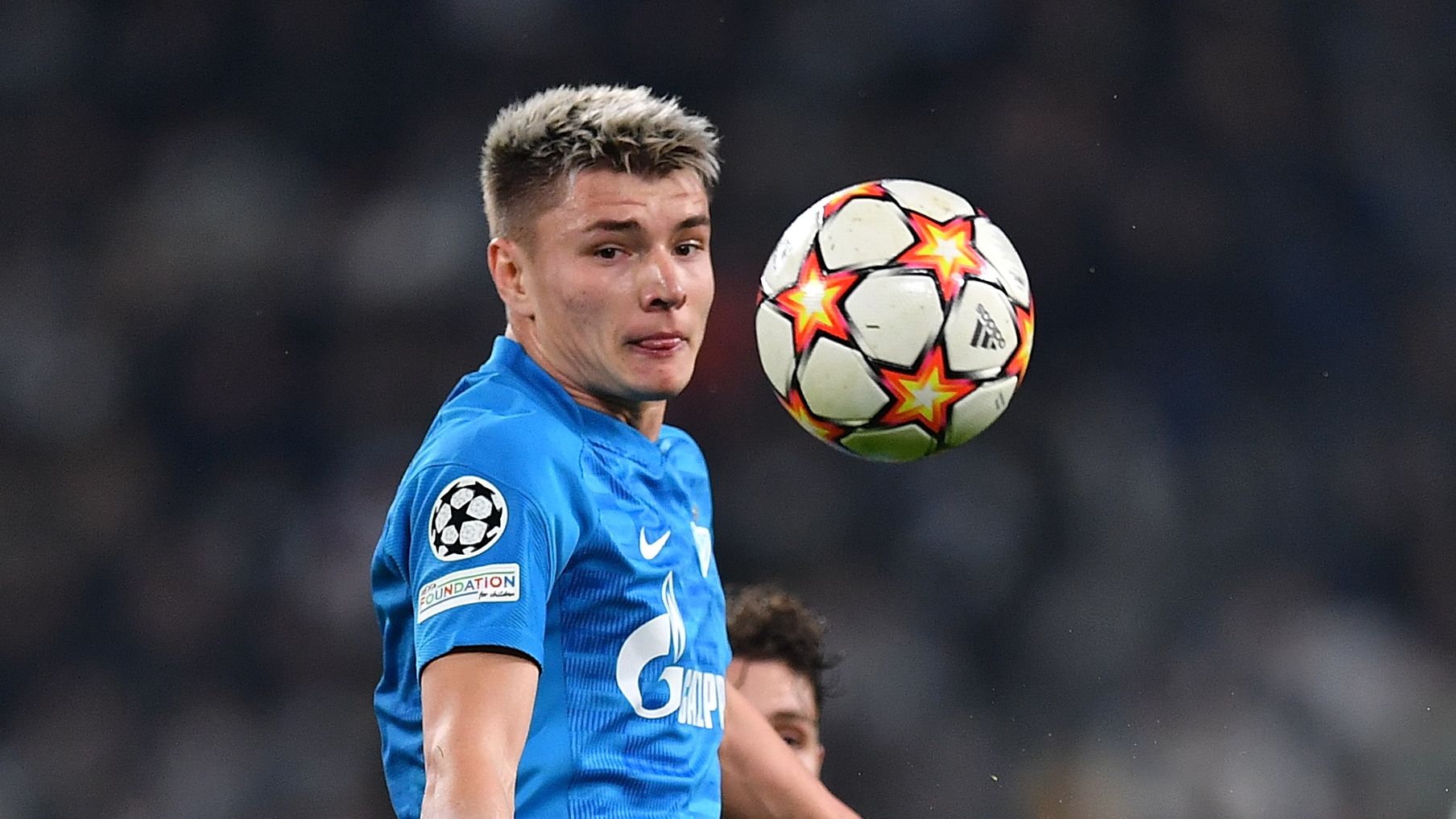

How a Talented Russian Footballer Outsmarted Bold Kidnappers in St. Petersburg
In a dramatic showdown that highlights the perils faced by elite athletes, Zenit winger Mostovoy managed to evade a bold kidnapping attempt, showcasing his quick thinking and resilience amid rising criminal threats in exclusive neighborhoods. This gripping tale not only reveals the vulnerability of high-profile figures like Mostovoy but also underscores the urgent need for enhanced protection in Russia’s sports world, as authorities unravel a network of orchestrated abductions.
The Tense Encounter with Attackers
Late on October 24, the Russian footballer Mostovoy found himself in the crosshairs of a planned seizure while exiting a local market on Krestovsky Island, alongside his longtime companion, ex-youth hockey star Alexander Grakun. Authorities soon tied this event to a wider criminal enterprise. As they neared Mostovoy’s luxury Mercedes G-Wagen, a van pulled up abruptly, disrupting what should have been a routine evening.
The Sudden Assault and Heroic Defense
Without warning, three assailants wearing masks leaped from the vehicle, seizing Mostovoy and trying to force him inside. Yet, the pair’s swift response caught the intruders off guard. Grakun acted decisively, yanking his friend to safety and pushing the aggressors back, while Mostovoy relied on his athletic prowess to flee into an adjacent forested area, evading capture as the attackers scrambled to recover.
Insights from Those Involved
Natalya, Grakun’s mother, shared in a discussion with KP-Petersburg how her son’s rapid evaluation of the danger was pivotal: “Sasha’s quick physical and mental strength overwhelmed the attackers, leaving them dazed and forcing a hasty retreat. Andrey’s exceptional agility truly saved the day.” Though visibly upset, Mostovoy reported the incident to law enforcement promptly that evening.
Initial Misconceptions and the Attackers’ Retreat
Grakun’s mother described both men as easygoing and free of rivalries, making the ordeal even more baffling. Initially, Mostovoy suspected it might stem from overly enthusiastic fans rather than a sinister scheme. She noted, “We initially wondered if fans were behind it, leaving them both in disbelief.” Eyewitness accounts indicate Mostovoy’s initial bewilderment overshadowed fear, as he later explained to officials, “I grasped what was happening instantly,” without fully recognizing the intent at first. The perpetrators, noted for their youth and strength, abandoned their plan once it fell apart.
Mostovoy’s Comeback and Professional Triumph
Undeterred by the ordeal, Mostovoy quickly resumed his training regimen and marked his 40th goal for Zenit during their game versus Lokomotiv Moscow. As Grakun’s mother put it, “This ordeal didn’t shatter his spirit; instead, he played a key role in securing the win for his squad.” This resilience exemplifies how athletes can bounce back from adversity.
The Follow-Up Crime and Law Enforcement Action
Just two days later, the same culprits struck again, successfully taking the son-in-law of State Duma member Vyacheslav Makarov. Police details reveal the victim was coerced into a vehicle, restrained with handcuffs, and intimidated with weapons while the group demanded 10 million rubles (about £95,000). He surrendered 210,000 rubles (£2,000) before officials stepped in to stop the extortion.
Apprehension of the Perpetrators
The young offenders, aged 19 to 20, were captured by the Ministry of Internal Affairs and FSB during the ransom handover. They had publicized their fitness routines online and sported tattoos linked to nationalism. One suspect disclosed that their anonymous boss contacted them via a Telegram account using the name “Satanist.”
Revelations from Interrogations
One detainee confessed, as reported by KP-Petersburg, “His handle is ‘Satanist,’ and I’m certain he’s based outside Russia.” Officials suspect the gang aimed at affluent or prominent individuals on Krestovsky Island, underestimating the consequences of their actions.
Ongoing Investigations and Security Upgrades
Law enforcement has launched cases under the Russian Criminal Code’s Articles 126 and 162 for abduction and extortion. The St. Petersburg Prosecutor’s Office stated that the four suspects are held pending trial, with collaboration from the Investigative Committee, FSB, and regional forces.
Club Response and Future Steps
Zenit has not released an official response but has apparently bolstered security for their roster. Sources indicate the team granted Mostovoy space to recuperate psychologically after the trauma. The probe continues, with a focus on pinpointing the “Satanist” through examination of digital exchanges and money trails.
Broader Implications for Athlete Protection
Mostovoy has gradually reintegrated into light practice with Zenit and is lined up for their upcoming match against Krylia Sovetov. This event has ignited conversations in Russian football regarding the safety of players and the necessity for tighter security, especially in upscale locales like Krestovsky Island.
The Kidnapping Attempt on Zenit Winger
Background on the Player and Zenit St. Petersburg
Zenit St. Petersburg, one of Russia’s premier football clubs, has long been a breeding ground for talented wingers who represent both the club and the Russian national team. A notable example is the unnamed Zenit winger, whose quick thinking and bravery recently made headlines in a harrowing incident. This player, known for his speed on the field and contributions to Russia’s international matches, exemplifies the high-stakes life of professional athletes in Russia.
In the world of Russian football, wingers like this individual play a crucial role, often using their agility to outmaneuver defenders and score decisive goals. Their prominence not only elevates Zenit’s performance in domestic leagues like the Russian Premier League but also bolsters Russia’s standing in international competitions. The incident highlights the unexpected dangers that can affect even the most skilled Russia winger, reminding fans of the importance of personal security amid rising global threats to high-profile figures.
Key attributes that make Zenit wingers stand out include:
- Exceptional dribbling skills and pace, which were instrumental in repelling the attack.
- A strong connection to the Russian national team, fostering national pride and fan loyalty.
- Frequent media exposure, which can unfortunately attract criminal attention.
Details of the Kidnapping Attempt and Repel
The incident unfolded when perpetrators targeted the Zenit and Russia winger in what appeared to be a coordinated kidnapping plot. According to reports, the assailants attempted to abduct the player during a routine outing, possibly leveraging his high-profile status for leverage. However, the winger’s swift response-drawing on his physical training and situational awareness-allowed him to repel the attempt successfully.
What made this case particularly alarming was the perpetrators’ demand for ransom, not for the winger himself, but for another individual. This twist suggests a broader criminal network, potentially linking the event to organized crime rings that operate in Russia and target athletes’ associates. The winger’s ability to fend off the attackers, possibly through self-defense techniques or alerting authorities quickly, prevented what could have escalated into a more severe crisis.
To break it down:
- Initial Approach: The perpetrators likely used deception or force to initiate contact, a common tactic in kidnapping attempts on public figures.
- Winger’s Response: Leveraging his athletic prowess, the player managed to create distance and call for help, emphasizing the value of personal security training for professional athletes.
- Ransom Demand Dynamics: Experts believe this was a misdirection strategy, where demanding ransom for another individual could distract from the primary target, highlighting the sophisticated nature of such crimes against Russia winger stars.
Implications for Athlete Safety and Security Measures
This event underscores the growing risks faced by Zenit players and other Russia wingers, who often travel extensively and maintain high-visibility lifestyles. In Russia, where football culture is deeply intertwined with national identity, such incidents can erode public trust and affect team morale. It’s essential for clubs like Zenit to prioritize robust security protocols to protect their stars.
Effective measures include:
- Enhanced Personal Security: Employing bodyguards and secure transportation for players, especially during off-field activities.
- Training Programs: Regular self-defense and awareness sessions tailored for athletes, which could have played a role in this Zenit winger’s successful repel.
- Collaboration with Authorities: Zenit and similar clubs should work closely with Russian law enforcement to monitor threats, as kidnapping attempts often involve international elements.
Furthermore, the psychological impact on the player cannot be overlooked. Russia wingers, already under pressure from competitive sports, may experience increased anxiety post-incident, potentially affecting their performance on the pitch. Fans and the football community can support by advocating for better safeguards, ensuring that talents from Zenit and the national team continue to thrive without fear.
Legal and Societal Fallout from the Ransom Demand
The perpetrators’ decision to demand ransom for another individual adds a layer of complexity, raising questions about interconnected criminal activities. In Russia, such cases often lead to investigations into larger syndicates, with authorities scrutinizing links to previous high-profile crimes. This incident serves as a wake-up call for stricter anti-kidnapping laws and international cooperation to combat threats against public figures like Zenit wingers.
Key aspects to consider:
- Investigation Progress: While details remain under wraps, early reports suggest that the ransom demand was a red herring, intended to confuse responders and extend the criminals’ escape window.
- Broader Trends: Similar cases involving Russia wingers or athletes highlight a pattern of targeting individuals with financial ties, underscoring the need for proactive measures in the football community.
- Public Awareness: Educating fans about these risks can foster a safer environment, encouraging vigilance without instilling unnecessary fear.
In summary of these elements, the bravery shown by the Zenit and Russia winger not only averted personal disaster but also spotlighted the urgent need for comprehensive security strategies in professional sports. By focusing on prevention and response, the football world can better protect its stars and maintain the integrity of games enjoyed by millions.









